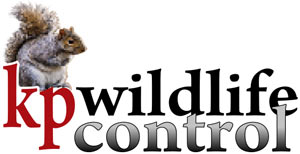As summer fades into fall, the changing weather invites more than crisp air and colorful foliage—it also signals increased wildlife activity around your home. September is a transitional month, and many animals are preparing for winter by seeking food, shelter, and safe nesting spots. While wildlife plays an important role in our ecosystem, unwanted animal visitors around your property can cause serious problems if left unchecked.

At K.P. Wildlife, we help homeowners throughout Maryland and the surrounding regions stay ahead of the most common wildlife issues. Let’s explore the top three wildlife problems homeowners face in September—and how to handle them safely and effectively.
1. Raccoons Preparing for Winter
Raccoons are clever, adaptable, and incredibly resourceful when it comes to finding food and shelter. As the days grow shorter in September, raccoons ramp up their activity in preparation for the colder months ahead. This often means scavenging through trash cans, sneaking into attics, or tearing up insulation in crawl spaces to build nests.
Warning Signs of Raccoon Activity:
- Scratching or thumping noises in the attic at night
- Trash cans that are regularly overturned or rummaged through
- Damaged soffits, shingles, or roof vents
- Droppings near entry points
Attempting to remove a raccoon on your own can be dangerous—they’re known carriers of rabies and parasites like roundworm. If you suspect a raccoon problem, it’s best to call in professionals like K.P. Wildlife for safe and humane removal, followed by sealing any points of entry.
2. Squirrels Nesting Indoors
Like raccoons, squirrels start preparing for winter in September—but they prefer to nest in quiet, insulated areas like attics, chimneys, or wall cavities. Squirrels are notorious for gnawing on wooden beams, wires, and even PVC pipes, creating serious safety hazards and costly damage.
Why September Is Prime Time for Squirrels:
- Fall is nesting season, and attics offer warm, dry shelter
- Trees begin to lose foliage, making natural nests more exposed
- Abundant food sources like acorns and berries are being gathered and stored
If you hear persistent scampering during the day, especially in the morning or late afternoon, you might have a squirrel problem. Our team can assess your property, remove the squirrels humanely, and install exclusion devices to prevent future intrusions.
3. Skunks Digging and Denning
Skunks may seem harmless, but their digging habits can destroy your lawn, garden beds, or even undermine your foundation if they choose to burrow under sheds or porches. In September, they begin looking for a winter den and are particularly active at night.
Signs You May Have a Skunk Nearby:
- Distinct odor near your home, especially in the early morning
- Small cone-shaped holes in the yard from foraging
- Burrows under steps, decks, or outbuildings
Skunks are generally non-aggressive but can spray if they feel threatened—and their spray can be difficult to remove from skin, clothing, and pets. Our licensed wildlife technicians can remove skunks safely and install barriers to prevent reentry.
Don’t Wait Until It’s Too Late
Wildlife issues caught early are far easier to manage—and much less expensive—than waiting until an infestation becomes severe. If you suspect raccoons, squirrels, skunks, or any other wildlife have taken an interest in your home this fall, K.P. Wildlife is here to help.
We provide fast, professional, and humane wildlife removal services along with exclusion and damage repair. Our team is licensed, local, and committed to keeping your home safe and critter-free as the seasons change. Schedule your fall wildlife inspection today!
